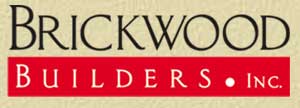
Downloads
and
other information>

The LHMP-RRP is established under N.C.
General Statute §130A-453.12-453.21 – Certification and
Accreditation of Lead-Based Paint Renovation Activities (PDF).
Rules adopted by the North Carolina Health Commission to implement
the statutes may be found under 10A
N.C.A.C. 41C .0900 - Lead-Based Paint Hazard Management Program
for Renovation, Repair and Painting (LHMP-RRP) (PDF).
The North Carolina LHMP-RRP Rules adopt the federal regulations
relating to lead-based paint renovation activities in child-occupied
facilities and target (pre-1978) housing by reference. These regulations
may be found at 40
CFR Part 745, Subpart L - Lead-Based Paint Activities and 40 CFR
Part 745, Subpart E – Residential Property Renovation (PDF).
Note: The statutes, rules, and regulations cited
here are unofficial copies of the actual documents, and are provided
solely for the sake of convenience. The official versions are available
at the following locations:
N.C.
General Statutes
N.C.
Administrative Code (Rules) |

Amendments to the LRRP Rule -
Effective after April 22, 2010
The EPA announced the removal of the Opt-Out provision. Under the
new amendment, a homeowner can no longer sign a waiver that will
allow the renovator to do work in a pre-1978 house without following
the certification, training and work practices outlined in LRRP
rule.
It is NOW the Law in North
Carolina -
Effective: January 1, 2010
Under the North
Carolina Rules (PDF), beginning
January 1, 2010, dust sampling technicians, firms, and individuals
performing renovation, repair and painting projects for compensation
that disturb lead-based paint in homes and child-occupied facilities
built before 1978, must be certified and must follow specific work
practices to prevent lead contamination. Child-occupied facilities
include, but are not limited to, child care facilities and schools
with children under the age of 6 years of age that are built before
1978.
To get more information on the specific work practices and other
actions required by reference in the North Carolina Rules, go to
the EPA
rule requiring the use of lead-safe practices (PDF).
Lead-based paint hazards arise from three sources: lead-based paint
in poor condition, lead-contaminated dust, and lead-contaminated
soil. The improper disturbance or removal of lead-based paint may
result in the production of paint chips and dust which may contaminate
a structure inside and out. Young children, under the age of six,
are the most vulnerable to the dangers potentially caused by exposure
to lead-based paint and associated lead in dust.
The North Carolina Department of Health and Human Services, Division
of Public Health, Health Hazards Control Unit (HHCU) administers
two lead-based paint programs in the state of North Carolina in
lieu of EPA: the Lead-Based Paint Hazard Management Program for
abatement activities (LHMP) and the Lead-Based Paint Hazard Management
Program for Renovation, Repair and Painting (LHMP-RRP). Through
these programs, the HHCU provides information to the public and
to business and industry about the health hazards of lead-based
paint and ways to control or prevent lead poisoning. The HHCU certifies
firms and individuals conducting lead-based paint abatement activities
and/or renovation activities, accredits training providers and courses,
and issues permits for lead-based paint abatement projects that
occur in child-occupied facilities and housing built before 1978.
The HHCU also inspects lead-based paint abatement projects.
For more information on the management of lead-based paint hazards
in North Carolina, contact the Health
Hazards Control Unit
or call Brickwood Builders,
Inc. at 336-852-7400.
|















